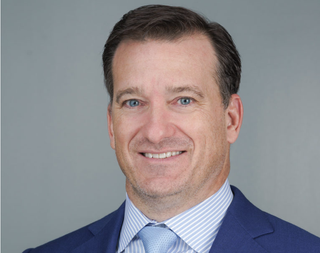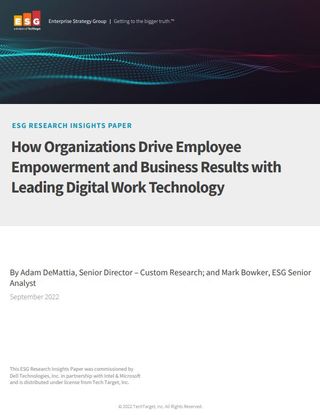Q&A: Fred Voccola, Kaseya
We spoke to the company's CEO about acquisitions, the importance of channel partners, and what we can expect next...

It's been just over six months since the acquisition of Datto was announced and circa four months since the deal was actually completed. What have your key focus areas been during that time and what will you be focused on going forward?
There has been a lot going on. First and foremost is we wanted to make sure – and we still want to make sure - that we are communicating with our partners (both Datto and Kaseya Partners) It [actually] feels like it’s been two years of operating as one business. We want to make sure we communicate to all constituencies: employees, partners etc. [We want them to understand] why we did this transaction and what it means. Why did we we buy Datto? [It’s down to] amazing technologies and amazing products.
[It's important to stress that] all products will be supported and invested in [going forward]. We have already increased investment in all of these products. and we're integrating all of Datto’s products into IT Complete. We've have also released a lot of workflow integrations between products that make them work better. IT Glue has been more deeply integrated with Datto Backup, as just one example.
We [now] want to make that technology even better by investing more money in it and integrating all of Datto’s products into IT Complete.
There's also a fear of change when a company gets acquired. But it's clear that when you acquire a company it's because you see something good in them you want to make it even better?
Exactly right [and] we have a track record. With every company that we have bought we have substantially increased the amount of resource and spend in R&D.
We have also substantially increased the amount of resource effort that goes into support. Support is not just about the help desk you call when you have a problem, it's also the commercial and account management support, and all the other things.
Channel Pro Newsletter
Stay up to date with the latest Channel industry news and analysis with our twice-weekly newsletter
We also lower prices and we have lowered the prices on Datto products. So, increased investment in R&D, increased investment in support, and lower prices. We have delivered on all of them. We are people of our word.
Why is that so important to you? And how do you manage to do it, time after time?
We want Kaseya MSPs or Kaseya partners to be the most successful on the planet. In order to do that it means having the best profit margins, and being the fastest growing as well as delivering the best solution to their customers.
Approximately 20% of an MSP’s recurring revenue is spent on software kit to deliver that revenue. If our software kit is 30% or 40% less expensive than our competitors, our MSPs are more profitable.
We have the only platform in the world that can provide all of the kit that an MSP needs. So, if we charge less for each specific module - and our modules are more integrated than any competitors - it incentivises the MSPs to go all-in with Kaseya. and they are spending less than if they went with seven different vendors. Not only do they spend less money, but the administrative overhead is much less. It’s a win-win.
There's a cost of living crisis right now - which is also a cost of doing business - so it is timely that you’ve completed this acquisition and you are delivering on promises, particularly around price and keeping things simple...
I spoke to a large MSP in London who said that labour costs are going up 10/15%/16% a year. It’s not always easy to pass that forward, so lot of companies are thinking about what that means.
I told him he could save 35% on his software costs if he migrated to all of IT Complete right now. That works out to something like 7% of his MRR. If he increased his prices by just 3%, he would be winning business from his competitors and keeping his margins while also being able to pay employees [an extra] 10%. Our business model allow us to do this while also increasing our investment in R&D.
We don’t have to recoup all our sales and marketing and executive overheads on one product - we can do it over 30 - that’s why we can offer better products at lower prices that are more integrated.
Do you learn something new with each acquisition that you can apply as experience to future ones?
Yes. While the acquisitions are successful, that doesn’t mean there aren’t bumps and bruises [along the way], but we learn from them all. You have philosophies of how to do things and then the tactical execution changes a little bit as you learn more.
Our first [philosophy] is that we try to do no wrong by the customer. There's also no such thing as the “Kaseya way”. The “Kaseya way” is a melting pot of the best practices of different companies that we have acquired over the years. We don’t want to get rid of the identity of the companies that we buy. We buy companies because they are great and we want to keep that.

How organisations drive employee empowerment and business results with leading digital technology
What you can achieve with a leading approach to digital work
Datto's partner programme is awesome. So, we took the that - it’s now called the Kaseya/Datto Partner Programme - and we doubled down on it. We have now more than tripled the amount of money [invested] and are participating in more than twice as many industry event. We’ve also hired more people in that area. We wanted to deliver more resource to be more creative and make the partner programme even better.
We will be buying more companies and we will learn a lot more [going forward] but our overall philosophy is that we are buying them for a reason. They are great companies, but Kaseya is also a great company so there are things we can apply and there are things that we can apply from acquisitions.
So it’s about bringing the best of both/all worlds together?
By buying a company, you get thousands of really good employees that have thousands of really good ideas. So, you buy not just great tech, not just great people, not just a great brand, not just great reputation, not just a great MSP programme, but you’ve got hundreds of thousands of fresh new ideas all at once. That’s awesome.
How important is the UK and Europe to Kaseya? Not just in relation to the Datto acquisition, but generally speaking? Is there still room/appetite to grow market share here?
Datto has a very good European presence and Kaseya brings a truly global view to the table. The European market is made up of multiple markets and the UK/Ireland is a very mature one for MSPs. You see a lot of consolidation happening there and a lot of new start-up MSPs.
In the next 18-24 months, you’ll see Kaseya [expanding more] into Spain. Our largest offices are in Miami and approximately one third of our company are native Spanish speakers. You will also see a very big push into Germany and France.
If we were to meet again a year from now, what sort of things would you like to be talking about?
We're about to release something called Profit Fuel. It's when an MSP embraces all of IT Complete and [as a result] will probably cut their costs by a third. That’s pure profit. More often than not, we can raise the profit of the MSP by 50% without adding a single customer.
We've also developed a very simple tool and exercise where we work with an MSP to audit their IT and security infrastructure. We ask “How much profit or fuel can IT Complete bring you to your profits?”
So, a year from now, I'd like to be talking about how many MSPs in Europe have embraced IT complete and the aggregate dollar amount of Profit Fuel we have given them.
We like making our MSPs successful and that usually that means driving profits. The more profit, the more you can pay your employees, shareholders etc. Everyone benefits. When we are in Dublin next year with partners, I want to have a list of thousands of MSPs in Europe that have gone on the Profit Fuel path. Hopefully, there will be hundreds of millions of £s of profit that we have put directly into their pockets, without them having to get another customer.
Maggie has been a journalist since 1999, starting her career as an editorial assistant on then-weekly magazine Computing, before working her way up to senior reporter level. In 2006, just weeks before ITPro was launched, Maggie joined Dennis Publishing as a reporter. Having worked her way up to editor of ITPro, she was appointed group editor of CloudPro and ITPro in April 2012. She became the editorial director and took responsibility for ChannelPro, in 2016.
Her areas of particular interest, aside from cloud, include management and C-level issues, the business value of technology, green and environmental issues and careers to name but a few.





